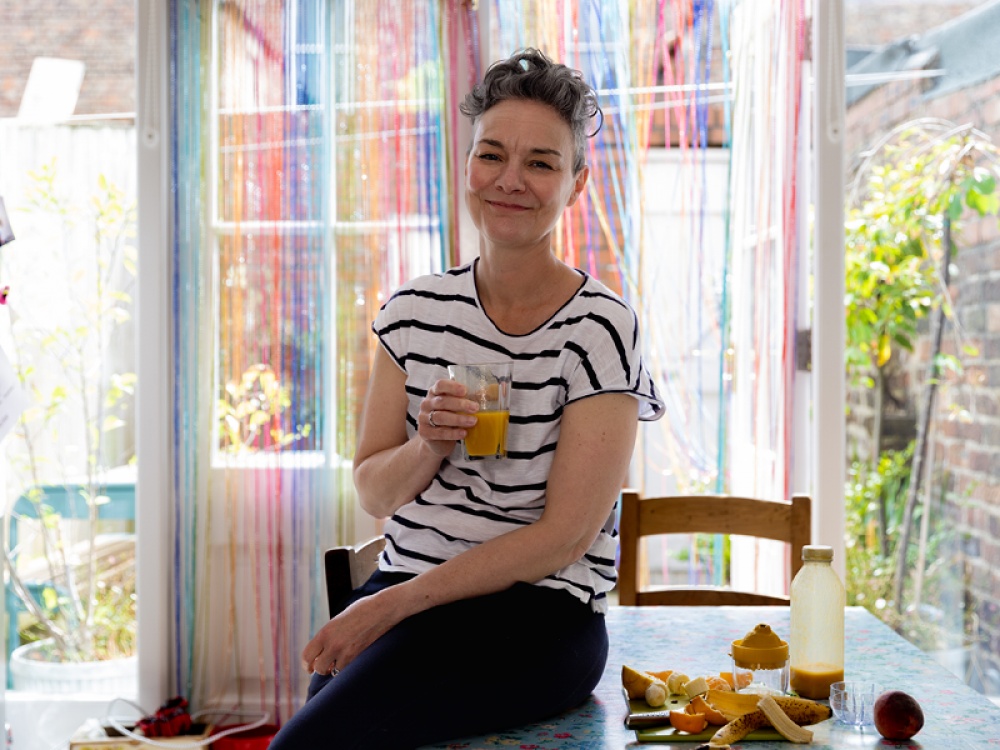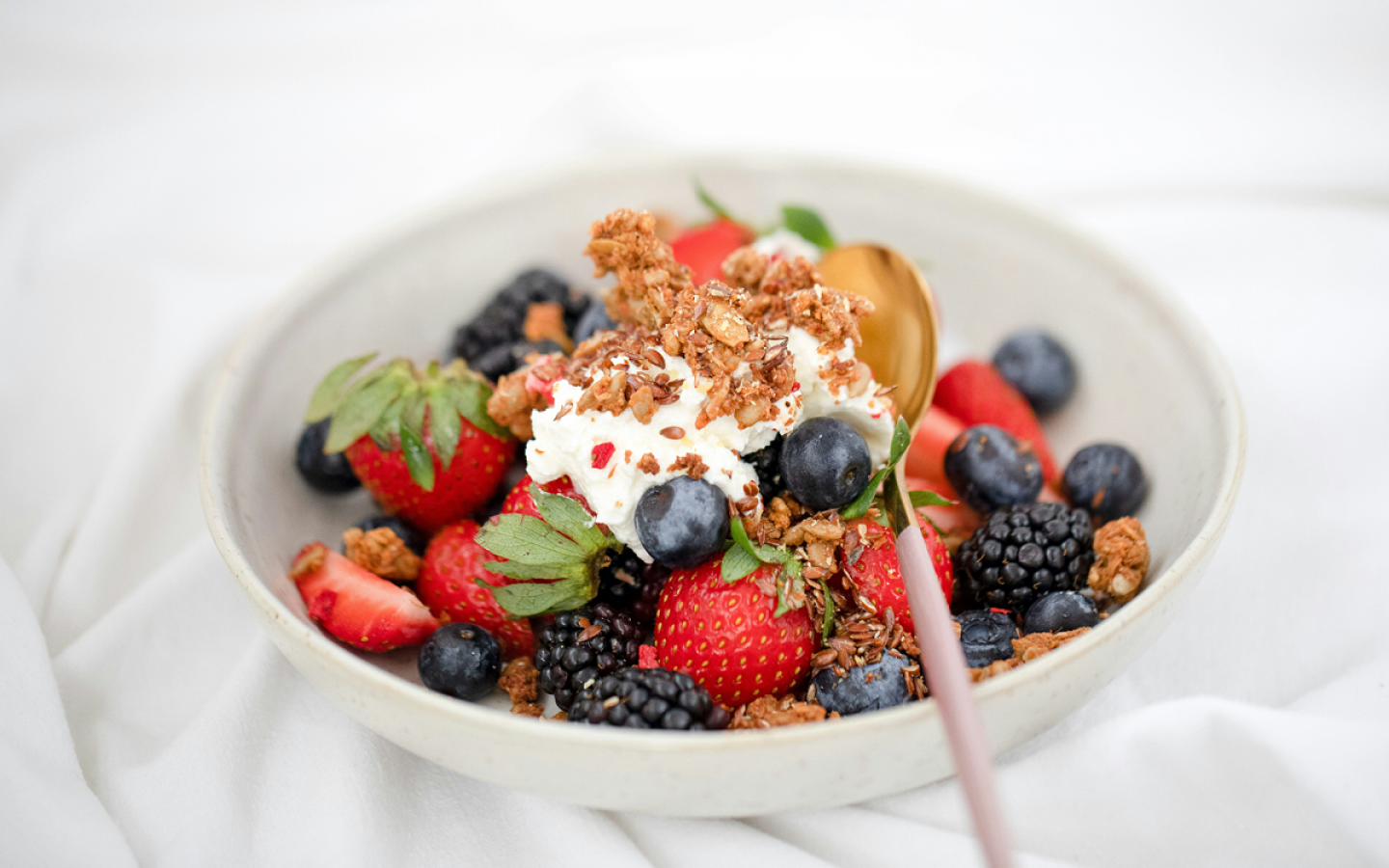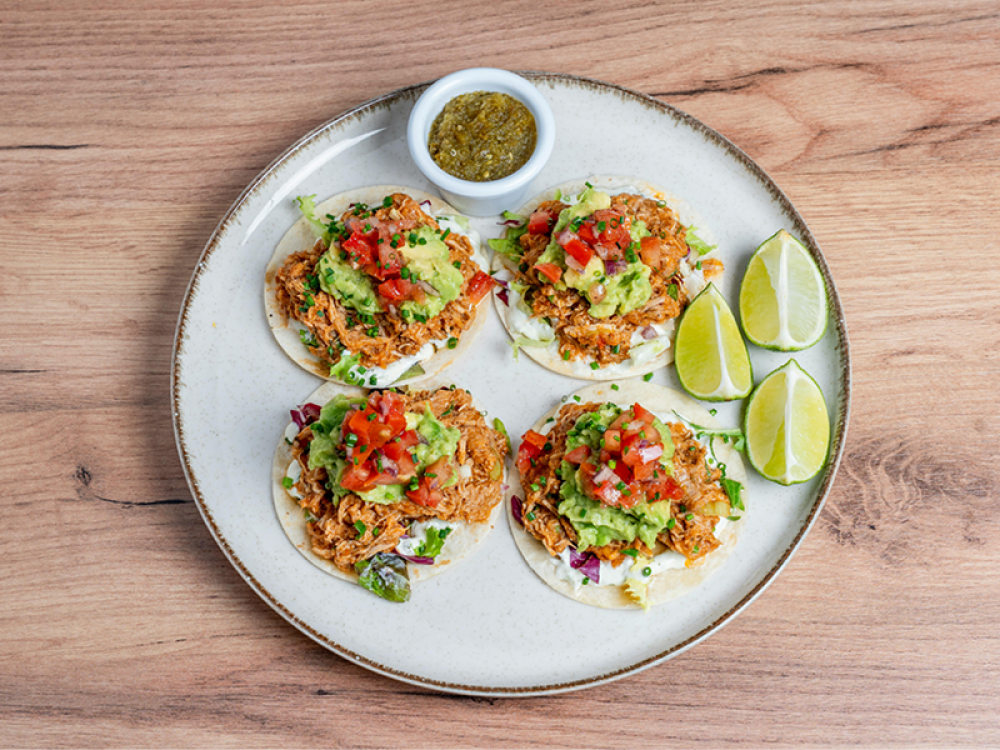Health Coach Elizabeth Joseph On What You Should be Eating in Midlife

Are you ready to become the best version of yourself?
Would you like a little more energy? A little less joint pain? A tad more sleep? A lot less stress? Do you seem to catch every cold that comes around? Do you struggle with constant stomach issues? Are you carrying a little more weight than you used to? Including the weight of the world on your shoulders?
Welcome to the Midlife Edit. We are going on a journey you and me. Over the next six months you are going to make a series of small changes that will help you to be the best version of yourself. We will work together to build new habits in order to make lasting change. Nothing too major, nothing you can’t handle. Just small, manageable tweaks that will bring big rewards. A new month, a new focus: diet, exercise, managing stress, digestion, hormones and the immune system. Are you with me?
This month we will be looking at diet – specifically how to balance blood sugars, what foods to avoid and what foods to add. We will also dispel a few myths along the way. Some may surprise you. Read on!

Let’s start with blood sugars. When we eat our blood sugar levels rise. During the hours after eating our blood sugars fall as we convert the glucose in our food to glycogen which is stored in the muscles and liver. If we eat a balanced diet, at regular intervals, our blood sugars remain stable and the hormone glucagon can be secreted, encouraging the body to go into fat burning mode. So far so good.
However, if we allow our blood sugars to drop too low, adrenaline gets released to remind us that it’s time to eat. If we ignore this signal, we can have a situation where glycogen gets converted back into glucose and our blood sugars can start to rise again. Out of nowhere we suddenly find ourselves feeling ‘hangry’, wired and tired all at once. Not ideal!
The key is to get ahead of this process, head off this blood sugar rollercoaster, and avoid the need for the body to release adrenaline. In midlife we do not want extra adrenaline, thank you very much, as it can lead adrenal issues, inflammation, IBS, weight gain and even depression.

The key then is to eat a balanced diet, at regular intervals and avoid eating too late at night. It makes sense also to avoid any form of fasting for now if you suffer from any of the symptoms above.
But what is a balanced diet? Excellent question! Nutritional science is of course an ever-evolving field of research and at times a frustrating landscape for us, as the consumers, with differing opinions and advice often leading to a feeling of overwhelm.
Most of us were brought up following ‘The Eatwell Guide’, which remains the UK national food guide. It recommends how much of what we eat overall should come from each food group to achieve a healthy, balanced diet.
It breaks it down as follows:
• potatoes, bread, rice, pasta and other starchy carbohydrate foods: 38%
• fruit and vegetables: 40%
• dairy and alternatives: 8%
• beans, pulses, fish, eggs, meat and other protein: 12%
• oils and spreads: 1%
But is this really a balanced diet? More recent thinking would suggest that the emphasis on carbohydrates could well be a factor in the current problems with obesity and type 2 diabetes in this country (check out the documentary Carb Loaded if you want to learn more). The lack of protein is another area of contention as protein is essential for our health – building cells, maintaining muscle and making enzymes. All saturated fat is bad for you according to this guide – yet this is no longer seen as being the case.
So, what are you supposed to believe now? I appreciate it can be difficult to change eating habits of a lifetime. But there is a strong possibility they may no longer serve you in midlife. Oestrogen fluctuation can cause women to become more sensitive to carbs so avoiding loading your plates with starchy carbs, steering clear of refined sugars and processed food is absolutely the way to go.
Make sure each meal contains protein – meat, poultry, seafood, fish, tofu, tempeh, eggs. If you are a vegetarian or vegan add some high-quality hemp, pea or rice protein powder to your meals.
And don’t be scared of fat. We need fat. We need it as an energy reserve, to help the body absorb fat soluble vitamins (A, D, E &K), to keep hair and skin healthy, protect organs and insulate our bodies. Think grass-fed butter, olives, avocados, nuts and cheese.
It may, or may not, surprise you to know that in the 1960s the sugar industry paid scientists to downplay the link between sugar and heart disease and shift the blame to fat.
What else can you do? Well, if you suffer from any of the symptoms we looked at above and/or joint pain, itchy skin, acne there are certain foods you might like to swerve. Or at least experiment with giving a wide berth – for about a month – to see if you notice a difference.
There are certain allergens that can cause inflammation in your body – namely wheat, dairy and sugar. If you have just shouted at me, ‘I’ve eaten wheat for years, my parents ate wheat, don’t be ridiculous!’ I hear you! You don’t need to take my word for it as there is a plethora of information out there detailing how our bodies struggle to break down gluten. Check out What’s with Wheat?, a multiple-expert-led documentary which will most definitely open your eyes.
As a health coach, I am used to initial resistance when it comes to experimenting with giving up wheat for a while and am always pleased to hear back from those who are amazed that one month without the stuff has rid them of a whole host of digestive issues not to mention joint pain.
If you are struggling with bad skin, constant colds or ear infections step away from the dairy for a while. If you feel jittery, struggle to fall asleep, have mood swings and brain fog – cut out refined sugar. It's always worth a try – even if you think it’s a little ‘woo woo’.
I believe it is healthy to question, research and experiment to find what works for you and what doesn’t. After all, we are all individuals and a one size fits all approach just isn’t going to cut it. Give some changes a try. Just for a month. Do let me know how you get on!







